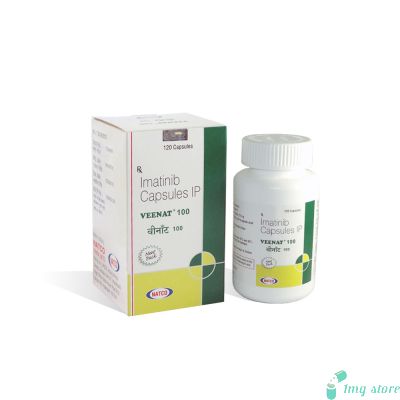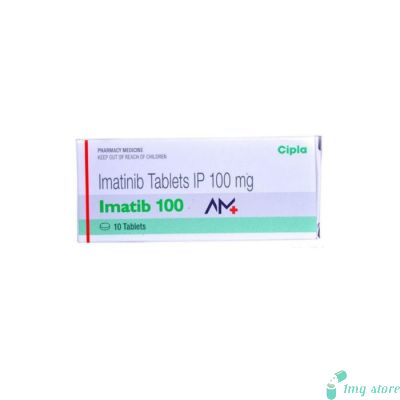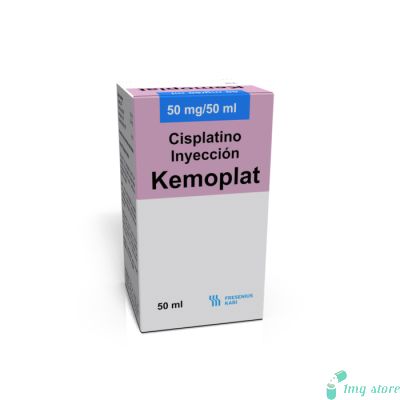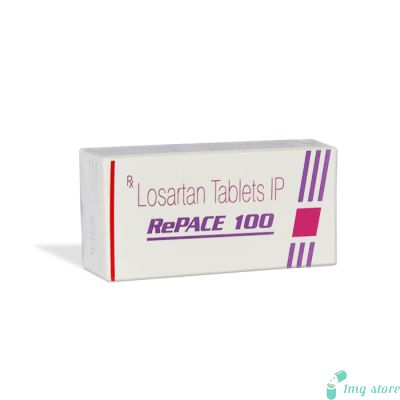Votrient Tablet (Pazopanib)
Pazopanib Tablet, marketed under the brand name Votrient, is an orally administered medication that belongs to the class of drugs known as tyrosine kinase inhibitors (TKIs).
Introduction to Pazopanib Tablet (Votrient)
Pazopanib, marketed under the brand name Votrient, is an orally administered medication that belongs to the class of drugs known as tyrosine kinase inhibitors (TKIs). It is primarily used for the treatment of certain types of cancers, specifically advanced renal cell carcinoma (RCC) and soft tissue sarcoma (STS). Pazopanib works by inhibiting the activity of certain enzymes in the body that are involved in the growth and spread of cancer cells. Pazopanib drug is a targeted therapy drug that specifically inhibits the activity of certain proteins called tyrosine kinases. These proteins play a crucial role in the growth and division of cells, including cancer cells. By inhibiting these proteins, pazopanib helps to slow down or stop the growth of cancer cells and prevents them from spreading to other parts of the body. Pazopanib is known as a multi-targeted TKI because it can inhibit several tyrosine kinases, including those associated with the vascular endothelial growth factor (VEGF) pathway. The VEGF pathway is involved in the formation of new blood vessels that supply nutrients to tumors. By blocking this pathway, pazopanib can impede the blood supply to tumors, thereby reducing their growth.
Dose Information of Pazopanib Tablet:
The recommended dose of pazopanib tablet varies depending on the specific condition being treated. For the treatment of advanced RCC, the usual starting dose is 800 mg once daily. For patients with STS, the recommended dose is 800 mg once daily as well. The tablets should be taken orally, with or without food, at approximately the same time each day. It is important to follow the prescribed dosage and frequency as directed by your healthcare provider.
Pazopanib 200mg Tablet:
Pazopanib is available in tablet form, with different strengths including 200mg. The 200mg tablet is a lower dosage option that may be prescribed for patients who require a lower starting dose or who need dose adjustments based on their specific medical condition or tolerability. The 50mg tablets should be taken orally according to the prescribed dosage schedule. It is important to note that pazopanib is a prescription medication and should only be used under the guidance and supervision of a qualified healthcare professional. Your doctor will determine the appropriate dosage, duration, and treatment schedule based on your specific medical condition and response to the medication.
Important Precautionary Measures to be taken while using Votrient Tablet (Pazopanib)
Anti-Cancer Drug: Pazopanib is an Anti-Cancer drug that should only be used under the supervision of a qualified healthcare professional experienced in the treatment of cancer. It is important to strictly adhere to the prescribed dosage and treatment schedule.
Life-Saving Drug: Pazopanib is considered a Life-Saving drug for patients with advanced renal cell carcinoma and soft tissue sarcoma. It is crucial to follow the prescribed regimen and notify your doctor immediately if you experience any concerning symptoms or side effects.
Medical History: Before initiating treatment with Pazopanib (Votrient), it is essential to inform your doctor about your complete medical history, including any pre-existing conditions or allergies. This includes a history of liver problems, heart disease, high blood pressure, bleeding disorders, thyroid disorders, and gastrointestinal perforation.
Pregnancy and Breastfeeding: Pazopanib may cause harm to an unborn baby, and therefore, it is not recommended for use during pregnancy unless the potential benefits outweigh the risks. It is also advised to avoid breastfeeding while receiving pazopanib, as it may pass into breast milk and harm the nursing infant.
Surgical Procedures: If you are scheduled for any surgical procedure, including dental surgery, inform your healthcare provider about your pazopanib treatment. The medication may need to be temporarily discontinued before and after surgery to minimize the risk of excessive bleeding or wound healing complications.
Key Applications of Pazopanib Tablet:
Advanced Renal Cell Carcinoma (RCC): Pazopanib is approved for the treatment of advanced RCC, which is a type of Kidney cancer. It is used in patients who have not received prior treatment or who have experienced disease progression after prior systemic therapy. Pazopanib helps to slow down the growth and spread of cancer cells, thereby improving overall survival rates.
Soft Tissue Sarcoma (STS): Pazopanib (Votrient) is also indicated for the treatment of advanced STS, which refers to a group of cancers that develop in the soft tissues of the body, such as muscles, tendons, fat, and blood vessels. It is prescribed for patients who have received prior chemotherapy treatment. Pazopanib helps to inhibit the growth of cancer cells and may prolong survival in patients with this condition.
Important Secondary Effects of Votrient Tablet (Pazopanib)
Common Side Effects: Pazopanib may cause common side effects, including diarrhea, nausea, vomiting, stomach pain, loss of appetite, headache, fatigue, high blood pressure, altered taste sensation, and hair color changes. These side effects are usually mild to moderate and can be managed with supportive care or dose adjustments.
Cardiac Effects: Some patients may experience cardiac side effects, such as chest pain, shortness of breath, rapid or irregular heartbeat, and swelling of the legs or ankles. It is important to report any new or worsening symptoms to your healthcare provider immediately.
Liver Toxicity: Pazopanib may cause liver toxicity, leading to elevated liver enzyme levels and potential liver damage. Symptoms may include yellowing of the skin or eyes (jaundice), dark urine, abdominal pain, and unusual tiredness. Regular liver function tests are necessary during treatment with pazopanib.
Gastrointestinal Perforation: In rare cases, pazopanib (Votrient) may cause gastrointestinal perforation (a hole or tear in the stomach or intestines). Seek immediate medical attention if you experience severe abdominal pain, vomiting, or black/tarry stools.
Wound Healing Complications: Pazopanib can interfere with the normal process of wound healing. If you are scheduled for surgery or have a wound that requires healing, inform your doctor, as the medication may need to be temporarily discontinued.
Hypertension: Pazopanib may cause an increase in blood pressure. Regular monitoring of blood pressure is important, and medications may be prescribed to control hypertension if necessary.
Frequently Asked Queries About Votrient Tablet (Pazopanib)
FAQ: Can Pazopanib be taken with food?
Answer: Yes, pazopanib can be taken with or without food. However, it is recommended to take it at approximately the same time each day to maintain consistency.
FAQ: Can Pazopanib (Votrient) be used in pediatric patients?
Answer: The safety and efficacy of pazopanib (Votrient) have not been established in pediatric patients. It is primarily indicated for use in adults with advanced renal cell carcinoma and soft tissue sarcoma.
FAQ: What should I do if I miss a dose of Pazopanib?
Answer: If you miss a dose, take it as soon as you remember, unless it is close to the time for your next scheduled dose. In that case, skip the missed dose and continue with your regular dosing schedule. Do not take a double dose to make up for the missed one.
FAQ: Can Pazopanib (Votrient) cause fertility problems?
Answer: There have been reports of fertility problems in both males and females receiving pazopanib (Votrient). If you have concerns about fertility, discuss them with your healthcare provider who can provide more information and guidance.
FAQ: Can Pazopanib be used as a standalone treatment for cancer?
Answer: Pazopanib is primarily used as a systemic therapy for advanced renal cell carcinoma and soft tissue sarcoma. It is usually not recommended as a standalone treatment and may be used in combination with other cancer treatments, such as surgery or radiation therapy, depending on the specific situation and treatment plan determined by your healthcare provider.
Primary Drug Interconnections with Votrient Tablet (Pazopanib)
Other Medications: Inform your doctor about all the medications you are currently taking, including prescription drugs, over-the-counter medications, vitamins, and herbal supplements. Certain medications, such as strong CYP3A4 inhibitors (e.g., ketoconazole, clarithromycin) and inducers (e.g., rifampin, phenytoin), may interact with pazopanib and affect its effectiveness or increase the risk of side effects.
Grapefruit Juice: Avoid consuming grapefruit juice or grapefruit products while taking pazopanib, as they may increase the blood levels of the medication and lead to a higher risk of side effects.
Anticoagulants and Antiplatelet Drugs: Concurrent use of pazopanib (Votrient) with anticoagulant medications (e.g., warfarin) or antiplatelet drugs (e.g., aspirin, clopidogrel) may increase the risk of bleeding. Regular monitoring of blood clotting parameters is essential in such cases.
| Manufacturer | : | GSK |
| Equivalent Brand | : | Votrient |
| Generic Search | : | Pazopanib |















